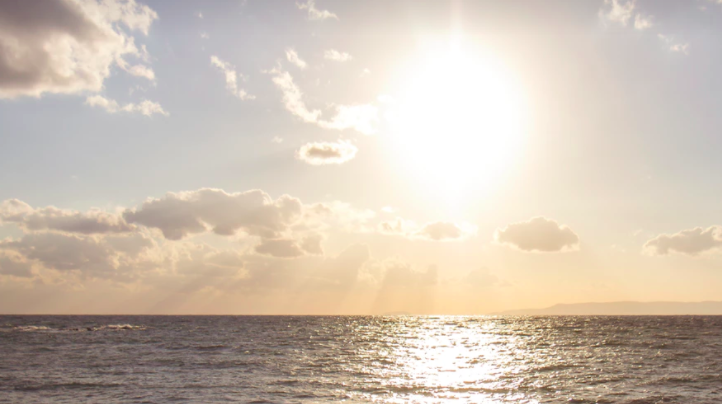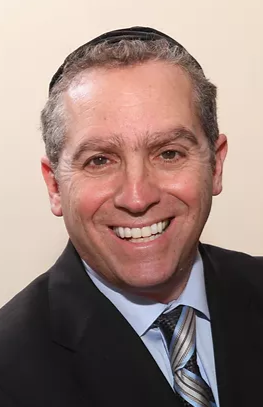
At the end of last week’s Perashah, after Pharaoh reluctantly sent B'nei Yisrael from Egypt, Moses instructs the people (13:14): "And it shall be when your son will ask you at some future time, What is this? You shall say to him, With a strong hand Hashem removed us from Egypt from the house of bondage".
From that time until today, every Mitzvah we are commanded to do and every holiday we celebrate will all be reminders of how Hashem saved us from the grip of Pharaoh and freed us with a strong hand from slavery to become a free people! As we read each day in the Shema Yisrael: Ani Hashem elokechem asher hotzeti etchem me’eretz mitzrayim lihiyot lachem lelokim; ani Hashem elokechem. “I am Hashem, your G-d who redeemed you from the land of Egypt to be your G-d." The text reminds us that it is our obligation to pass the story of our redemption from generation to generation up to this very day!
As B'nei Yisrael are leaving Egypt, Hashem sends them on a detour in order to bypass the land of the Philistines. This leads them to the shores of the Yam Suf. When they realize that Pharaoh's army is pursuing them, and that they are now trapped between the sea and the Egyptian army, they begin to lose faith that Hashem will save them again.
They cry out to Hashem: “Is it because there are no graves in Egypt that you have taken us to die in the desert?” Hashem says to Moses, mah tiss'ak elai? "Why do you cry out to me?" Hashem instructs Moses: "Speak to B'nei Yisrael and tell them to move forward!"
According to Midrash, Nahshon ben Aminadav who was a prince of the tribe of Judah was the first one to take that leap of faith and jump into the water! Rabenu Bahya explains that the Yam Suf didn't split all at once, and therefore they were not able to see across to the other side; rather, there was a wall of water in front of them and with each step they took, the sea continued to split.
Just as in life, we move forward step by step as we go through the trials and tribulations of our lives, and as we deal with them as they come, overcoming our challenges one by one. Only later can we look back and see with clarity how we arrived at where we are today! We have to constantly have Emunah and Bitahon that Hashem will be there for us and guide us through our lives, as long as we continue to follow in the Derech of Hashem, even though we can't possibly see what lies ahead of us! Hashem is saying to us: mah tiss'ak elai? Why are you crying out to me? Just take that leap of faith and have complete confidence and Emunah that Hashem is always with us!
I remember when I was buying my first house about thirty years ago, Rabbi Ozeri told me, "Jack, don't worry, just jump into the fire, we all did it and Hashem will help you!" Similarly, when we start a new career or a new project, we must take the first step and move forward, and Hashem will do the rest. We have to remember that Hashem is always with us!
The Or HaHayyim has an amazing commentary that teaches us how we can apply these events to our everyday life. The Rabbis tell us that when B'nei Yisrael reached tYam Suf, the water did not want to split. Yam Suf said to Hashem, "Why should I split for Moshe? I was created on the third day and Man was created on the sixth day, which makes me greater than Man."
The Rabbis go on to explain that the Torah preceded the world and is a blueprint for this world. When Hashem created the Sea, He established a Yisod (foundation) that if a Talmid Hacham asks water to go against its nature, then the water is obligated to do so. The water protested: Moshe was not a Talmid Hacham yet because the Torah wasn't given till forty days later! Hashem replied that Moshe was on his way to receive the Torah so that he would qualify as a Talmid Hacham. Yam Suf then listened and split for Moshe!
Another Midrash teaches that the angels complained, "Why are you saving the Israelites and killing the Egyptians, when they both served idols? What's the difference between them, and why would you save one and not the other?" The Rabbis explain that Moses was still carrying the bones of Yosef in order to inter them as Yosef had requested, and when the Sea saw Yosef's bones, the bones were a reminder that the Israelites were not like the Egyptians. Yosef went against his Yetzer Hara and ran away from the wife of Potifar when she tried to seduce him. Because of Yosef's Zechut, the Sea also ran away and obeyed the order to split, so that B'nei Yisrael would be able to walk through the waters and thus be rescued from the pursuing Egyptian army.
There are many occasions in the Torah when great men are able to perform miracles, as when Yehoshua was able to stop the sun from setting during a battle in the conquering of the land of Israel. Great rabbis have also been able to bring about miraculous events that indicate the intervention of Hashem. The Baba Sali, the great Moroccan rabbi and Kabbalist who died about thirty years ago and whose Yartzeit was last week was also known to perform many miracles.
There was a story of an injured soldier in a wheelchair who couldn't walk. The Baba Sali asked the soldier: "Do you put on tefilin or keep Shabbat?" The soldier replied in the negative, so the Baba Sali told him "Make a commitment that you'll put on Tefilin every day and keep Shabbat and I'll bless you to get up out of that wheel chair and walk on your own". The soldier agreed, and he was able to walk again.
Another current day story that I read in Hacham Ovadia's Artscroll biography was of a miracle that was performed by Hacham Ovadia to benefit our very own Hacham Baruch Ben Haim. Approximately seventeen years ago, his close friend and our Rabbi Hacham Baruch Ben-Haim sustained a serious heart attack and he lay unconscious in the hospital for several months. A medical referral specialist in New York spoke to his doctors at length and informed the family that the main problem was not with Hacham Baruch’s heart, but with his lungs. There was only one doctor in the New York area who could treat this problem, and he worked far from the hospital in which Hacham Baruch lay. The family called this doctor and asked whether he would be willing to examine Hacham Baruch, but he refused, explaining that he had no time. Even when they offered him a large sum of money for his services, he could not be swayed. His patient roster was simply too full to make time to examine someone in a faraway hospital.
The family was wondering what to do next, when Rav David Yosef, who happened to be in New York at the time and was privy to their conversation, asked whether he could perhaps speak to the doctor who he heard was a non-religious Jew. “Perhaps I can speak to his Jewish heart,” Rav David suggested.
He called the doctor and asked, “Have you heard of Harav Ovadia Yosef?”
"Certainly,” replied the doctor.
“Well, his childhood friend is lying the hospital, unconscious, and I’m certain that Rabbi Yosef would greatly appreciate it if you could examine his friend.”
“Oh, he’s Rabbi Yosef’s friend?” The doctor asked in surprise, “I’m coming right down.”
Thankfully, the doctor was able to diagnose Hacham Baruch correctly. Within a few weeks he had returned to full function, and he lived for another two years. When the family called the doctor’s office to settle payment, they were astonished to hear that the doctor did not want money. “I didn’t do this for pay,” he explained. “I owed this to Rabbi Yosef.”
He then shared his fascinating story. Several years earlier, this doctor’s son had visited Israel, and wound up in the wrong place at the wrong time. While he was in Yerushalayim, a terrorist detonated a suicide bomb right beside him. The doctor received a call that his son had been rushed to Hadassah Hospital in critical condition. He booked the next flight to Israel and ran to his son’s bedside, but despite his medical knowledge, there was little that he could do for his son. Having heard about great rabbis and their power of blessing, he asked someone to arrange for him to visit some of these rabbis. Each rabbi whose house he visited empathized with his plight and promised to pray for his son. When he reached Harav Ovadia’s home, the Rav listened to him, and then closed his Gemara and told his driver, “Come, we’re going to Hadassah.”
When they reached this young man’s room, Harav Ovadia began to recite chapter after chapter of Tehillim, with tears streaming down his face. After fifteen minutes of crying the words of Tehillim, he blessed the young man to have a Refuah Shelemah, and left. “My son had a miraculous recovery,” the doctor related. “And if Rabbi Yosef, who was thoroughly engrossed in his books when I walked in, was willing to drop everything and run to my son’s bedside, didn’t I owe him the same in return when his friend’s life was on the line?” “When I told my father what had transpired, he was overwhelmed with emotion,” concludes Rav David Yosef. He said, ‘Who would have thought that my visit to that boy’s bedside would lead to Hacham Baruch’s recovery?’”
These miracles that our great Rabbis were able to bring about were only a result of special powers that came from the Koah (power) of the Torah within them!
May we all have Emunah in Hashem that He is always with us throughout our lives, each and every step of the way, even though we may not be able to see the light at the end of the tunnel yet. May we also emulate Nahshon ben Aminadav by having the courage to take that leap of faith in our lives with our families and in our careers, knowing that Hashem will always be there for us as long as we have the Emunah to believe!
Parasha perspective By Jack E. Rahmey from the teachings and guidance of Rabbi Amram Sananes.








